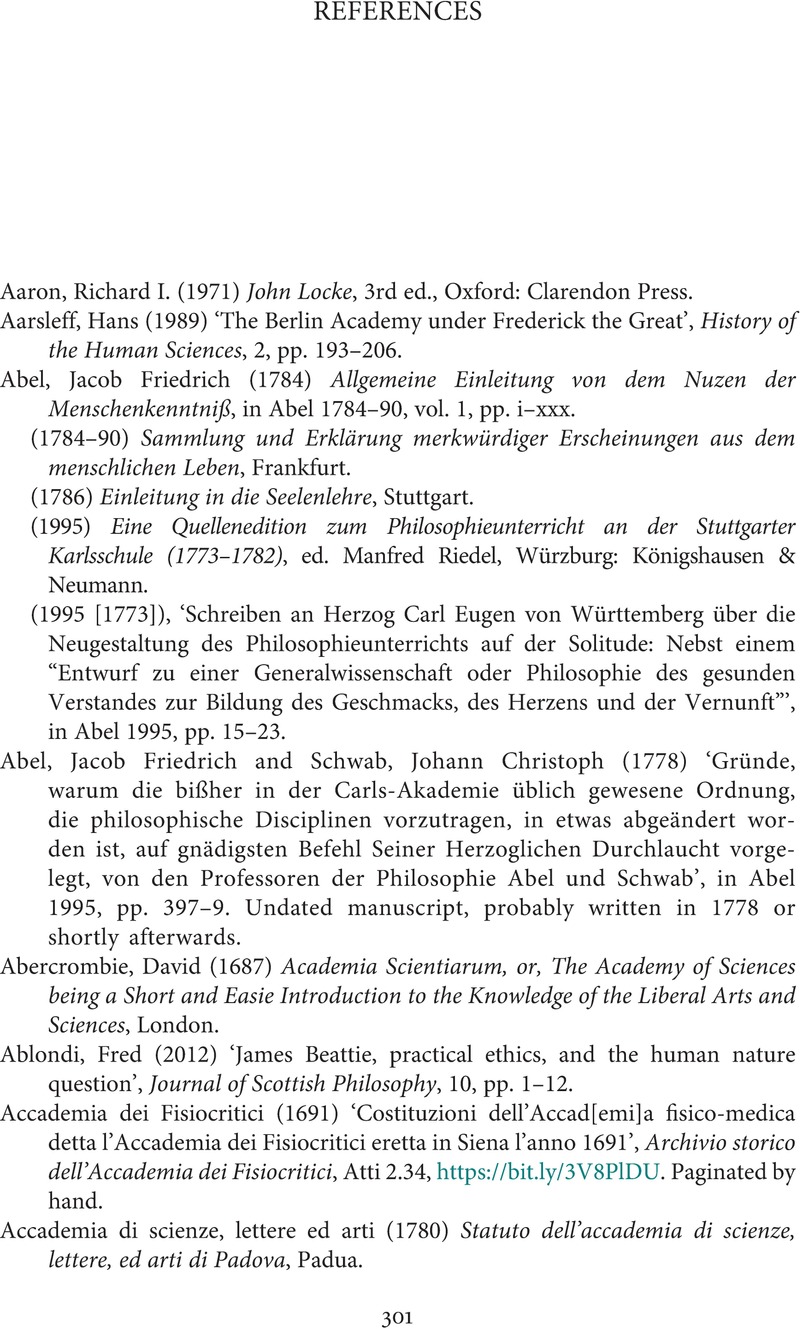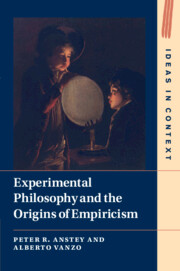Book contents
- Experimental Philosophy and the Origins of Empiricism
- Ideas In Context
- Experimental Philosophy and the Origins of Empiricism
- Copyright page
- Contents
- Figures
- Tables
- Acknowledgements
- A Note on Citations
- Abbreviations
- Introduction
- Part I The Rise of Experimental Philosophy
- Part II The Heyday of Experimental Philosophy
- Part III From Experimental Philosophy to Empiricism
- Conclusion
- Manuscripts Cited
- Newspapers, Broadsheets, and Almanacs
- References
- Index
- References
References
Published online by Cambridge University Press: 17 February 2023
- Experimental Philosophy and the Origins of Empiricism
- Ideas In Context
- Experimental Philosophy and the Origins of Empiricism
- Copyright page
- Contents
- Figures
- Tables
- Acknowledgements
- A Note on Citations
- Abbreviations
- Introduction
- Part I The Rise of Experimental Philosophy
- Part II The Heyday of Experimental Philosophy
- Part III From Experimental Philosophy to Empiricism
- Conclusion
- Manuscripts Cited
- Newspapers, Broadsheets, and Almanacs
- References
- Index
- References
Summary

- Type
- Chapter
- Information
- Experimental Philosophy and the Origins of Empiricism , pp. 301 - 352Publisher: Cambridge University PressPrint publication year: 2023

